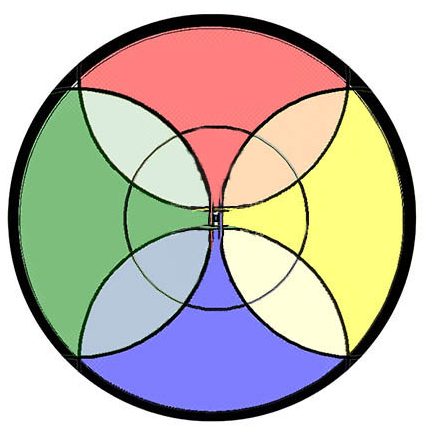This post is part of a series forming a review of Quartz activity. For an introduction and overview of the report start here at the “Sabbatical” post.
“Pioneers venture into the edges of postmodern culture exploring spirituality alongside fellow seekers and nomads“
The communities Quartz has walked closest with are the Heritage and Arts communities. Most of the Heritage activities fall into the next section, so I’m going to focus on the Arts for a while.
Outerweave is a general title to complement Interweave. The two activities used similar techniques to explore, understand and express spirituality. You can find out more on the Wordsmithcrafts website here. Or you could get a flavour by watching this video from an Outerweave at Kirkcudbright Arts and Crafts trail:
and YouthBeatz in the health and wellbeing area:
Walking with artists involves experimenting with art. A lockdown theme for my artwork has been drawn together from gazing into the river and reflecting. A range of work comes together under the term “Nith Mirror”:
This is the piece commisioned by The Stove Network :
I describe something of my motivation and process here:
And this is a day spent with Alison Fair Bixler exploring the relationship between words and peoples experience of Love on Valentine’s day in the Stove Cafe:
In these activities I walk with people who are exploring the edges of culture. They are passionate about ritual and ask big questions about the nature of the cosmos. Sometimes they do this in words, but more often it is following gut instinct and testing solutions to find out what works.
Presenting Christianity as a unique metanarrative which explains everything works for some people. They are probably already committed to a form of religious practice, or perhaps will respond well to an Alpha course. This is not an approach suited to post-modernity however, where global culture is normal and kids will live on LA time to keep up with YouTube stars if left to their own devices, as will many of their parents. They are skilled in building a raft of meaning, sometimes internally contradictory, but which floats enough to get them where they need to go. They will often be happy to add something new to improve this raft but are suspicious of the claims and demands made by institutions like the Church.
If Christianity is unique, then as long as pioneers are walking in the way of Jesus they will help people find their path over the rainbow bridge that promises to lead to one of the many dwelling places that are prepared.
There is no ready-made path in spirituality, even when we
follow masters and schools, ancient or modern, and even if we
feel ourselves clothed in the multitude of brothers and sisters
who have gone before us or come with us on our travels. There
is no ready-made path, but Jesus is the way. And he himself is
the bread and wine we need for the journey. There is no need
to wait for maps to replace our spirituality or to stop us from
creatively exploring new heights or greater depths. Walking in
him, according to his Spirit, we make a safe path by walking. (xxvi)
or more simply
There is no path. There is a Way. And we make the path by
walking. (xxvii)
– Pedro Casalddliga, Jose Maria Vigil, THE SPIRITUALITY OF LIBERATION 1992 BURNS & OATES
The first thing developed to link this type of activity to St Johns church was a set of cards we could give to people we had conversations with. These cards featured the Scottish Episcopal Church and St Johns logos. The Quartz graphics were also developed to help make connections between the diverse activities carried out, and also to link to the online social media presence. These methods are designed to work with a digitally literate community, but are less effective at connecting with the bulk of the traditional church population. When this was pointed out I developed the following graphics and started to use them more consitently within St Johns communications, on e-mail etc. as well as externally.



The cross design used as the Quartz logo was part of the first presentation made to the Vestry around 2014. The four coloured areas represent four areas of activity which the project (briefly called a colony of heaven project inspired by St Ninians legendary work with Candida Casa at Whithorn). The inner circle represents core church culture activities, and the outer areas are examples of similar activities practiced by Christians in the wider community – “walking with”. The names used for the projects will probably be unfamiliar, but the intent was to try things out and see what worked.
Here is the original drawing with its labels.

Follow this link to get back to the “Sabbatical” post.

